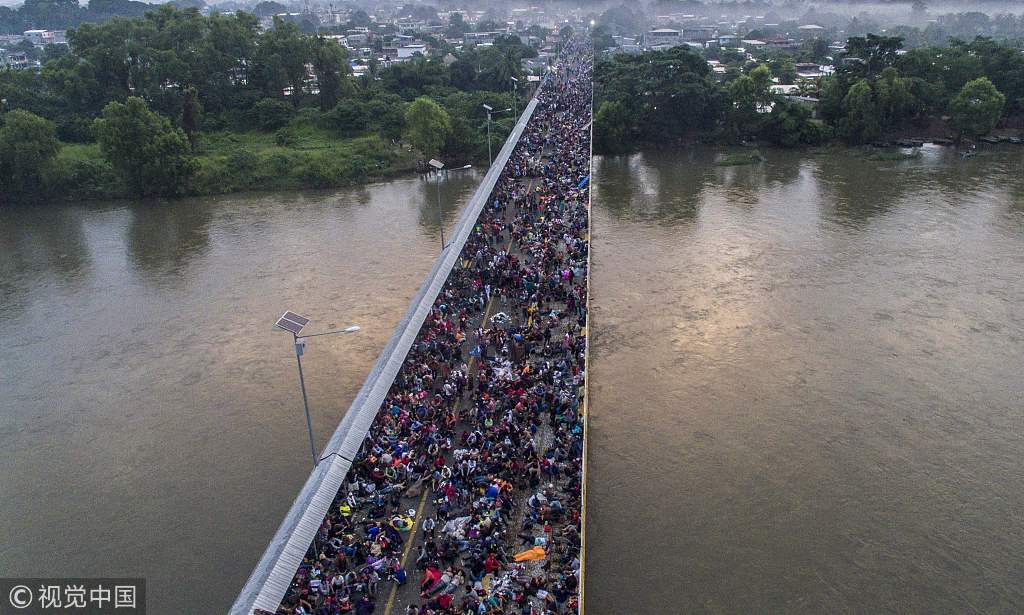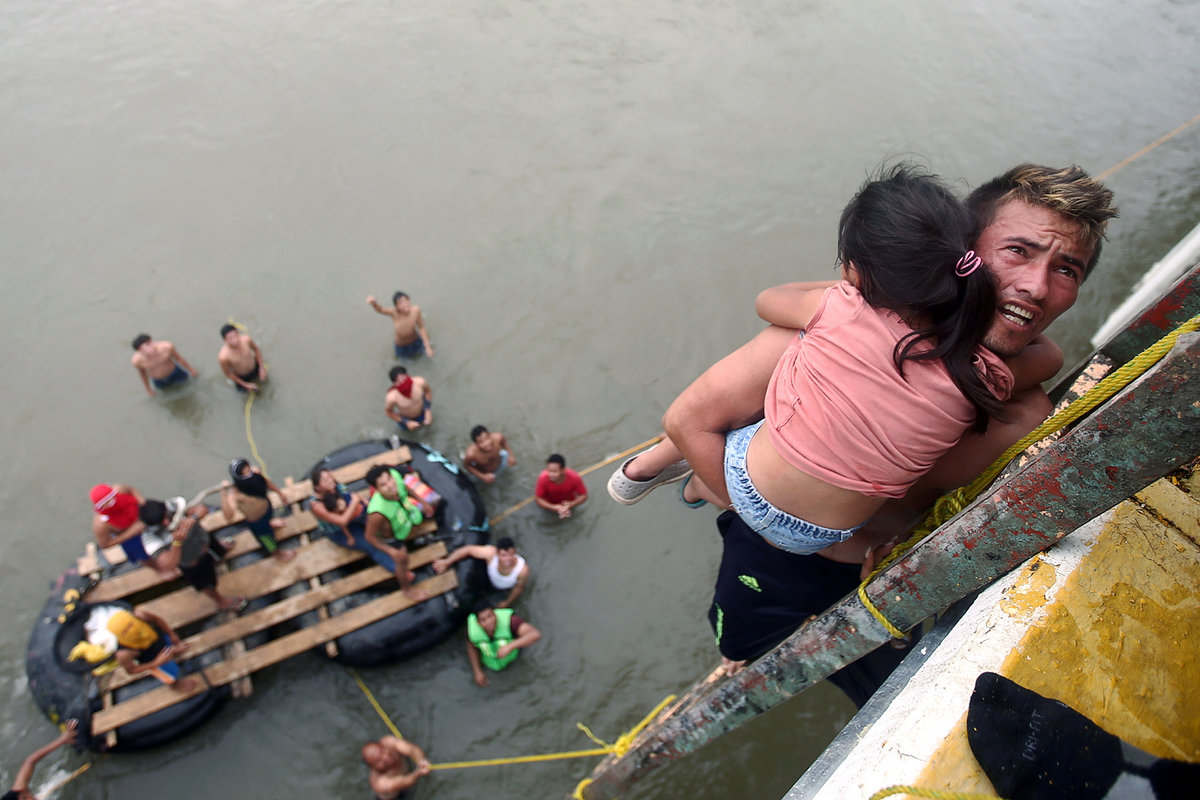Thousands of migrants cross border into Mexico
China Daily | Updated: 2018-10-22 10:17

Caravan vows to carry on to US after being held up at bridge
CIUDAD HIDALGO, Mexico - Despite Mexican efforts to stop them at the border, about 2,000 Central American migrants swam or rafted across a river separating the country from Guatemala, re-formed their mass caravan in Mexico and vowed to resume their journey toward the United States.
The migrants, who said they gave up trying to enter Mexico legally because the asylum application process was too slow, gathered on Saturday at a park in the border city of Ciudad Hidalgo. They voted by a show of hands to continue north en masse, then marched to the bridge crossing the Suchiate River and urged those still on it to join them.
"We are going to reach the United States," said Erasmo Duarte, a migrant from Danli, Honduras, despite warnings US President Donald Trump.
Trump, speaking at a rally in Elko, Nevada, kept up his rhetoric against the migrants and suggested the caravan was politically motivated.
"The Democrats want caravans, they like the caravans. A lot of people say'I wonder who started that caravan?'" he said.
Last week, Trump threatened to cut aid to the region, deploy the military and close the US-Mexican border if authorities did not stop them.
Honduran President Juan Orlando Hernandez and his Guatemalan counterpart Jimmy Morales continued Trump's theme after they met in Guatemala to discuss the crisis on Saturday.
"This migration has political motivations," said Morales, "which is violating the borders and the good faith of the states and of course putting at risk the most important thing, people."

Hernandez also deplored "the abuse of people's needs" for "political reasons".
"Without a doubt, we have a lot to do so that our people can have opportunities in their communities," he said.
The decision to re-form the migrant caravan capped a day in which Mexican authorities again refused mass entry to migrants on the bridge, instead accepting dozens of women and children. Authorities also handed out numbers for people to be processed in a strategy seen before at US border posts when dealing with large numbers of migrants.
But many became impatient and circumvented the border gate, crossing the river on rafts, by swimming or by wading in full view of the hundreds of Mexican police manning the blockade on the bridge. Some paid locals the equivalent of $1.25 to ferry them across. They were not detained on reaching the Mexican side.
Sairy Bueso, a 24-year old Honduran mother of two, was among those who abandoned the bridge and crossed via the river. She clutched her 2-year-old daughter Dayani, who had recently had a heart operation, as she got off a raft.
"The girl suffered greatly because of all the people crowded" on the bridge, Bueso said. "There are risks that we must take for the good of our children."
Group leaders said the caravan would strike out on Sunday morning for the city of Tapachula.
Guatemala has organized a fleet of buses to take Hondurans back to their country and more than 300 people have taken up the offer.
But many more have hunkered down in shelters, with about 5,100 migrants registered in three facilities in Ciudad Hidalgo, while another 2,000 had camped out for the night in the town's central square, said Gerardo Hernandez, head of the local government's emergency services.
"It's really full. You can't even walk, there's just so many people," he said referring to the plaza. "So far, they're all peaceful, thank God."
The migrants are generally fleeing poverty and insecurity in Honduras, where street gangs rule with brutal violence.
With a homicide rate of 43 per 100,000 citizens, Honduras is one of the most violent countries in the world.
AP - AFP - Reuters
























